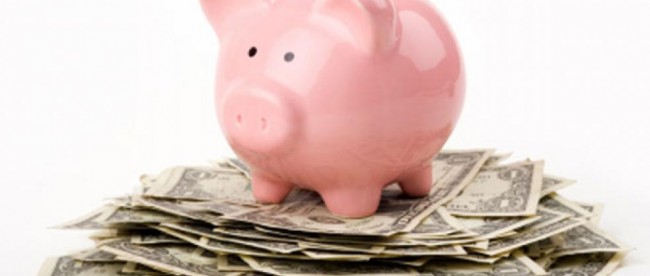Win, Lose, or Save

According to various surveys (summarized here), an estimated 60% of Americans have less than $1,000 put away in savings accounts. And to make matters worse, about 20% don’t have a savings account at all. While there are many reasons for this, one of them is that the incentives to save (beyond peace of mind) are limited. Especially now, when interest rates on savings accounts are typically below 1% and some banks even levy maintenance charges on low-balance savings accounts, many people understandably would rather not bother putting the few dollars they can spare into the bank.
But there’s reason to encourage savings — especially because over time, even small deposits can add up. Interest aside, an 18-year-old who puts $5 into a savings account each week will have $5,000 before his or her 40th birthday — a safety net which can be the difference between a rough patch and a downward spiral into poverty. So finding ways to encourage savings has been on the minds of a few economists and policymakers both in the U.S. and around the world.
One emerging idea: turn it into a lottery — but one where no one loses.
In 2010, Stephen Dubner of Freakonomics sat down with Peter Tufano, then a professor at Harvard Business School and now the dean of the Saïd Business School at the University of Oxford. Tufano had conducted a survey, asking people if they could come up with $2,000 with only 30 days notice — and only about half could. As Tufano noted, that means “that they stand only one emergency or crisis away from really quite dire circumstances.” And that wasn’t unique to the poor; per Dubner, “in Tufano’s survey, only 25 percent of the people who earn between $100,000 and $150,000 a year could come up with that $2,000 in 30 days.” That suggests that the lack of savings isn’t a problem of inability, but one of culture and habit.
Tufano went looking for a solution, and what he realized is that many families like to play the lottery, and those who do play often. Specifically, per Tufano, “households that play the lottery spend on average about $1,000 a year on tickets — that’s more than a typical household spends in grocery stores on dairy products and beer combined.” So, what if we could turn savings accounts into lotteries?
As it turns out, that idea has a name — it’s called a “prize-linked savings account,” or PLSA. How they work is pretty simple. To enter, participants have to sign up for a special savings account, typically with a local credit union. Then, the participant simply needs to deposit money into the PLSA to enter regular lottery drawings. Save to Win, probably the most popular U.S. example of a PSA, requires a deposit of $25 a month — that earns the depositor one entry into a monthly drawing. Depositors can earn a total of ten entries, with each entry “costing” $25 apiece. But unlike a regular lottery, if you lose, the money doesn’t evaporate into some government fund or casino vault. Instead, it stays in your saving account, earning interest. So even if you lose the lottery, you win.
Do PLSAs work? Probably. In 2009, Michigan piloted Tufano’s program and had positive results. Per a Minnesota legislative report (pdf), over the approximately 5,000 families in the program, 56% were “non-savers” beforehand, and on average, those roughly 2,800 families had put away $588 each. Similarly, those in the program earning under $40,000 a year managed to save more than $600 each, suggesting that even low- and moderate-income families could benefit from a PLSA.
In response to the apparent success and popularity of PLSA programs, the U.S. government passed the American Savings Promotion Act in 2014, paving the way for other states to adopt them without fear of running into anti-gambling laws and banking regulations. And casinos, the lottery, and other proprietors of gambling games shouldn’t worry — according to CNN, PLSAs “[probably do not] discourage people from playing the lottery,” as people find ways to buy those entries, too.
Bonus fact: In 2008, a California man named Michael Lake found a different incentive to open a bank account — the sub-$1 bounty offered by brokerage accounts. When you link a bank account with a brokerage account, the brokerage house makes a small deposit — as little as two cents, as much as 99 — to verify that they have the right account. Allegedly, per WIRED, Lake realized that you could do this over and over again — so he opened up tens of thousands of bank accounts and (via an automated process) associated them with brokerage houses. He apparently collected more than $50,000 before the authorities got wind of his acts and charged him with computer fraud.
From the Archives: How to Pay Yourself $2.1 Million in Taxes: The big mistake was not having a savings account.
Take the Quiz: Can you name the one-syllable words that rhyme with “bank”?
Related: Novelty lottery tickets. Each one is a winner, except that they’re fake.
